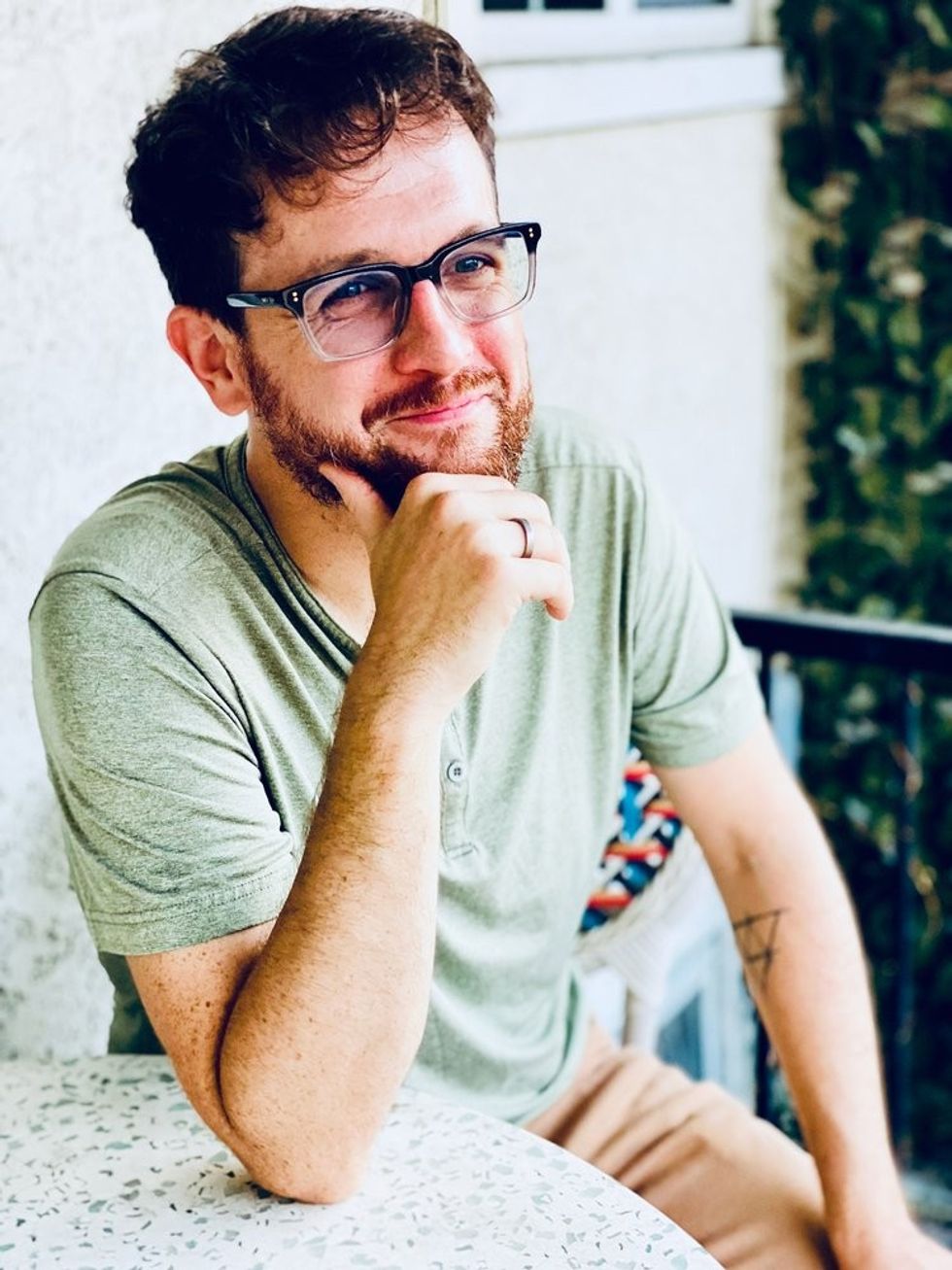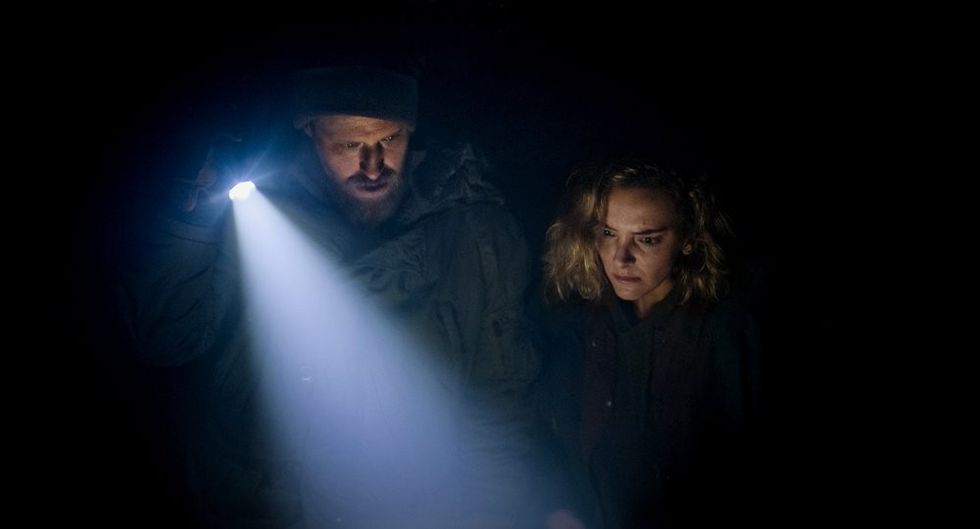
Written by Michael Felker
I spent the last twenty years writing features because I wanted to make a movie.
It was my dream since watching indie films as a kid in the ’90s. I wanted to make a profound movie more than anything else in the world—everything else in life came second. I spent Friday nights at home writing features instead of going out. I spent holidays figuring out how to write with an affordable budget. I took the old screenwriting phrase “write what you know” and spun it into “write what I have”.
I wrote and wrote and wrote.
Then, one day, I cracked it. I figured out the perfect indie feature that I could make with my own money, with my close friends, and with resources I had or could get for pennies on the dollar. This would be the the movie that would finally get the monkey off my back. This would be the movie that would change everything.
And that movie is Timeshare.
Timeshare was a story I wrestled with deep into the pandemic. The premise was: “on an isolated farmhouse, an old woman loses her husband through horrifying circumstances. When she’s pushed to sell her farmhouse, ghosts from centuries past appear and seemingly interact with her as if she was a ghost from their time, and visa-versa.”
It all eventually leads to a supernatural reunion that will either save the family from breaking apart or push the old woman to a grim fate much like her husband’s. It sounded strange, ethereal, and even nonsensical. But at the time, this was a challenging, original, and cathartic film for me—a grandson who thought about his own grandparent living by herself on a farm. I thought it was profound and beautiful.
 Michael Felker, thinking
Michael Felker, thinking
I pitched it to my incredible producing partner, Shane Spiegel, and some key crew members, who all jumped on board to make it in early 2022.
Then I passed the script on to Rustic Films, a company comprised of indie directors Justin Benson, Aaron Moorhead, and producer Dave Lawson Jr.. Considering I’ve worked them closely as their editor for years, I would send them scripts to see if they were something worth making on my own. With “Timeshare” I wanted their blessing and advice for a first time filmmaker eager to get started.
A month later they sent over notes that were were mixed at best. They liked the script, but bumped on the emotional hook in some key moments. Their notes weren’t easy to tackle, but I knew I had to apply them to really make the movie better. So I did a couple of passes that put the script in a much better shape for them, and for me. I showed the final draft to my wife, fellow writer Jori Lynn Felker, who gave me a thumbs up after being my harshest critic for every script that came before. I did one final re-read before setting off a dozen emails that would eventually put the movie into motion…
But then, about halfway through my re-read, I realized that I hated the script.
What the hell happened? Why was a script I spent two years loving all of a sudden something I genuinely loathed?
I started to spiral. And when I start to spiral, I put on comfort movies. Movies that remind me of why I liked movies in the first place. One of the movies is Blood Simple, the Coen Brothers first feature. When I was kid I didn’t really think about it too much until I did some research on famous debut movies. As I watching it, I truly realized how awesome it was. It’s so clever. So exciting. So fun. I then remembered my dad watching it when I was kid and he said the same thing. He would rub his hands together really fast when he got excited about a plot turn or a character reveal. It was like he was starting a fire with an imaginary stick in his palms—Blood Simple could burn a house down.
 Things Will be DifferentCourtesy of Magnolia Pictures
Things Will be DifferentCourtesy of Magnolia Pictures
I then started thinking about what movies other people in my life love. My mother’s favorite rom coms, like My Best Friend’s Wedding. My sister’s favorite dramedies, like Rushmore. My wife’s favorite sci-fis, like Alien. These were all movies that were entertaining classics that left a lot for people to chew on for days, months, and years later.
When I went back to Timeshare, I asked “who was this for?” Would my dad like the scene that reminded him too much of his own mother? Would my sister relate to ghostly apparitions in a creaky house? Would my mom find someone she found relatable? Would my wife have fun? Would my grandmother like it at all? The answer could’ve been yes or no, but the real question was this: was this movie made for anyone but me? If the answer was only me, it felt selfish, pretentious, and ultimately hollow.
If I made a movie for someone else, it felt selfless, exciting, and fulfilling in more ways than one.
A month later, I threw away Timeshare. Around that time, my father visited town and we saw Everything Everywhere All At Once. Afterwards, I pitched him an idea for a low budget movie that we can make with our resources, that I knew he would enjoy. We came up with something pretty cool, and two months later I wrote my next first feature, a story where Things Will be Different.
I spent the next two years making a feature because I wanted to make movie that someone else would love.
Author: Guest Author
This article comes from No Film School and can be read on the original site.
